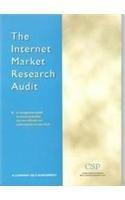Question
Product X is a consumer product with a retail price of $12.95. Retailers margins on the product are 40% and wholesalers margins are 8% (based
Product X is a consumer product with a retail price of $12.95. Retailers margins on the product are 40% and wholesalers margins are 8% (based on the selling price).
Total retail size of the market in which Product X competes is $425MM (MM stands for millions), and Product Xs market share (in dollars) is 21.3%.
Manufacturing fixed costs of Product X are $1,400,000 and the variable costs are $.86 per unit. Product X spends $2,000,000 a year on advertising, and has miscellaneous variable costs (shipping and handling) of $.04 per unit. It pays its sales people completely on commission at 12% of the manufacturers selling price (not retail price!). Lastly, Xs Product Manager has a salary of $90,000 a year. Calculate the following:
1. What is the contribution margin (also called unit contribution) for Product X in $?
2. What is Product Xs break even volume (BEV) in units?
3. What market share (based on retail sales) does Product X need to break even? (hint: remember that the retail price of Product X is $12.95 and the total market size is $425MM. you will also need to use the BEV from Q2). This answer will be expressed as a percentage.
4. What is the total number of units Product X sold based on the case information? (hint: use the retail market size, Product Xs market share, and Product Xs retail price in your calculation)
5. Calculate the annual net profit in dollars for Product X (hint: remember that for every unit sold over the breakeven volume the company makes a profit equal to the contribution margin of that unit)
6. Suppose Product X doubles its ad spending but still wants to maintain its current net profit (note, this current profit is the answer from Q5). Calculate the difference in total # of units needed to cover the increase in ad spending while maintaining the same profit. (hint: calculate the new # of units needed and subtract the base case # of units sold which was the answer to Q4)
7. Suppose Product X reduces the manufacturer selling price by 25%. Calculate the difference in total # of units needed to maintain its current profit level (Q5) compared to its base case unit volume. (hint: same as in Q6. Calculate the new # of units needed to maintain that profit level with the lower manufacturers selling price and subtract the base case # of units sold from Q4)
8. Suppose Product X changed its sales commission to 15% of manufacturer selling price. Calculate the difference in total # of units needed to cover this increased commission while maintaining the same profit. (same hint as above. You will also use the manufacturer selling price you had to calculate in Q1 to arrive at the new VC and new contribution margin)
Step by Step Solution
There are 3 Steps involved in it
Step: 1

Get Instant Access to Expert-Tailored Solutions
See step-by-step solutions with expert insights and AI powered tools for academic success
Step: 2

Step: 3

Ace Your Homework with AI
Get the answers you need in no time with our AI-driven, step-by-step assistance
Get Started


